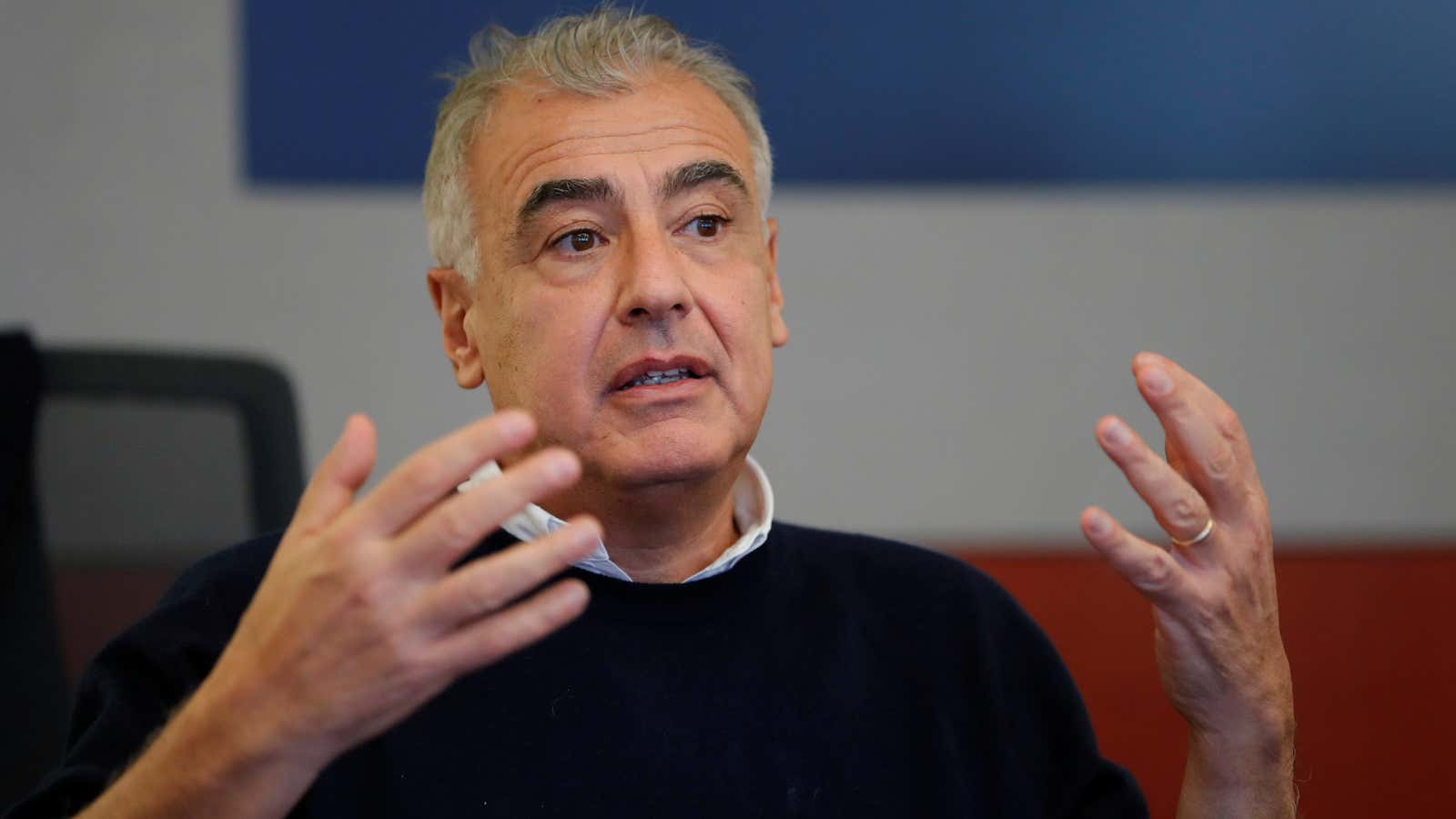It’s turning out to be an uncomfortable few days for US billionaire Marc Lasry.
Last week, Lasry’s media investment Ozy Media shut down following a report in the New York Times about its questionable business practices, just three weeks after the hedge fund investor took on the role of chairman at the news startup. The problems at Ozy included its chief operations officer impersonating a YouTube executive on an investor call with Goldman Sachs, which saw through the apparent ruse, and inflated traffic numbers.
This weekend an energy firm in which he’s a major investor caused an oil spill off the coast of California’s Orange County. Lasry’s Avenue Capital Group is the largest shareholder in Amplify Energy, with a 6.7% stake according to an SEC filing from May, via one of its flagship products, the Energy Opportunities Fund.
An oil spill off California’s Orange County beaches
People on boats noticed oily water late Friday and early Saturday (Oct. 1-2), the Associated Press reported. Officials later said about 126,000 gallons of oil had leaked from an underwater pipeline belonging to a unit of Amplify Energy, and that parts of the coast—including the popular Huntington Beach and Laguna Beach—could remain closed for weeks or months. It’s one of the largest oil spills the state has seen.
The Houston-based oil-and-gas firm said it shut down offshore operations in the area on Saturday night. These include the “Elly” platform, to which the leaking pipeline connected.
Quartz has reached out to Avenue for comment.
Investing in oil and gas in a time of climate change
Lasry and his sister Sonia Gardner co-founded Avenue Capital in 1995. The firm mainly focuses on distressed debt, and the Energy Opportunities Fund invests in such assets in energy and utilities in the US. The hedge fund’s site also lists environmental and sustainable opportunities in line with UN sustainable development goals as one of its strategies.
Apart from the risks of a catastrophe such as this one, the battle against climate change has increasingly placed scrutiny on oil and gas investments. Climate advocates have put pressure on investment firms such as Vanguard and BlackRock whose holdings remain an important source of financing for fossil fuels. BlackRock has signaled it will begin looking at investments through a climate lens, and will divest from thermal coal.
In the short run and medium run, it’s true that divestment from traditional sources of power will add more volatility to the global energy supply but the hope is that shifting investment to renewables, as well as building out the expensive infrastructure to store and transport it, will over decades create a stable yet low-emissions power supply—and one that poses fewer risks to beaches and birds.
